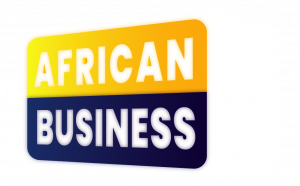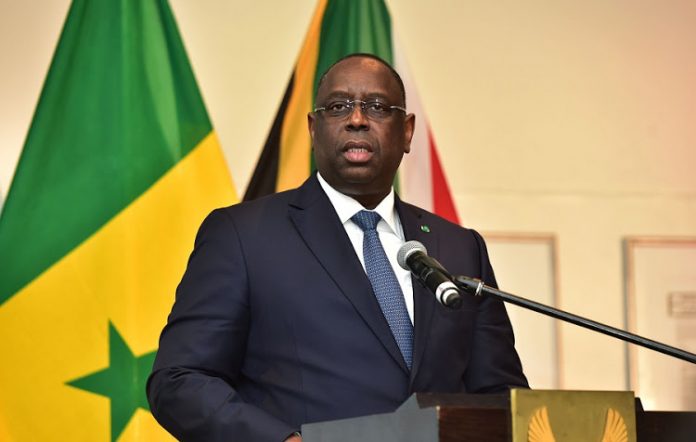What is the specificity of the political and communication strategy of the President of Senegal, Macky Sall globally and specifically in the face of Covid-19 in Africa?
The Covid-19 crisis has confirmed the leading role of some African leaders (South Africa, Morocco, Rwanda) and allowed others to acquire new stature. President Macky Sall is certainly one of them, just like, in another register, Andry Rajoelina in Madagascar.
Behind this, it is economic development, leadership and more symbolically Pan-Africanism that is at stake, with one weapon among many: communication.
Indeed, by speaking first to their populations and then at the international level, by publicizing their actions in a less old school way than usual, these presidents are acquiring a new dimension on the African scene. Here we offer a case study with Macky Sall.
The three Macky Sall!
Reelected in May 2019 at the head of the Yoonu Yookuté (The Road to True Development) coalition, Macky Sall has found himself on the front line in the face of the virus since the removal of the post of Prime Minister.
Unlike some of its counterparts providing a minimal service (Cameroon, Equatorial Guinea, etc.), content to manage the emergency (Burkina Faso, Nigeria, etc.), to call for help (Mali, Niger, Republic Central African Republic, etc.) or to play greenhorns (Gabon, Guinea Bissau, etc.), the Senegalese president seems to have become aware of the crisis and its consequences by deciding to act, in part under pressure from social organizations civil – some will say – like the Y en a marre movement which very early on challenged it on the issue of the coronavirus.
To keep control, to stay in phase with his Liggéeyal Ëllëk (meeting with the future) and his emerging Senegal Plan, Macky Sall understood that he had to step up to the plate, not be satisfied with long technical statements which he is customary, symbolic appearances, procrastination or cookie-cutter talk like some of its peers (Burundi, Comoros, Mali, Republic of Congo, Tanzania, etc.).
This is all the more so as the presidential word, in Africa, as elsewhere, does not necessarily have a proven impact, being competed with by social networks – at least in countries with a satisfactory coverage rate and Internet speed – and by other authorities deemed more credible by the populations, whether they are religious or customary.
Beyond the health crisis, a priori under control, the economic crisis will strongly impact Senegal and its development projects. Foreign direct investment is at half-mast, growth is collapsing, and some infrastructure projects are almost at a standstill.
Investments in the hydrocarbon and gas sector, which should make Senegal an oil country in the short term, will be delayed, like the Grand-Tortue gas megaproject (on the maritime border with Mauritania) whose entry into production is postponed to 2023. A source of income and fewer jobs.
If before the health crisis, the Senegalese generally had a rather positive vision of their president’s economic policy, they feared that the future oil and gas windfall would be managed in a non-transparent manner by the powers in place. A sign of distrust of the powers that be, which can be found elsewhere on the continent.
At the microeconomic level, the crisis initiated by the Covid-19 reveals, in Senegal as in all the countries of the planet, the inadequacies of the action of the public authorities. Covid-19 is hitting the informal economy hard, which employs around 80% of the workforce. There are also all the crucial questions facing developing countries: disruption of supply circuits, social movements, etc.
On the political level, Macky Sall is also faced with oppositions that let nothing pass, who argue and know how to play with the media, much better than most of those in the West African zone. He must also take into account the leaders of the major religious brotherhoods, which is moreover during Ramadan.
The Senegalese president must therefore play on several fronts. To caricature in the extreme, we saw three Macky Sall. First of all, the “Macky-fireman” who must contain the health crisis and face the immediate economic and social problems of his fellow citizens now living under duress (let us repeat, the measures taken hamper a large part of life and basic needs of the most modest).
Then comes the “Macky-captain” who must take the helm, navigate the macroeconomic storm and set a course, while gathering as much as possible around him. It is about not appearing as a country that suffers, being content to cope with the means at hand.
Finally, we saw the appearance of the potential “Macky-African leader”, who in a few weeks succeeded in establishing himself as one of the leading leaders by positioning himself early enough on problems beyond the strict Senegalese framework by choosing the cancellation of the African debt for combat.
In Senegal: a president, firefighter and captain!
In mid-March 2020, as the threat of the coronavirus draws closer, Macky Sall takes a whole series of defensive measures (ban on demonstrations, closure of schools, suspension of formalities related to the hajj and national pilgrimages, etc.). He then announced that he would chair twice a week, and more if needed, a national security council on the issue. The border closure comes on March 20.
He also deals with the classical opposition, civil society organizations and leaders of religious brotherhoods, ultimately achieving a kind of national union. Idrissa Seck, her hapless rival in the 2019 ballot, is in the game. Same thing with Khalifa Sall, little resentful, the former mayor of Dakar having been imprisoned in 2018 (and therefore prevented from running for president), then sentenced at the end of a trial that caused a stir beyond the borders, to be finally pardoned by Macky Sall in September 2019, after the election …
On March 23, in an address to the Senegalese, he intends to raise the level of response. A state of emergency has been declared and will be extended until the beginning of June. He encourages his compatriots to be responsible and civic-minded. He is setting up a Covid-19 growth and economic watch committee, an Economic and Social Resilience Plan (PRES, we note the acronym) and a response and solidarity fund called Force-Covid-19 which should, via public and private resources, mobilize 1,000 billion CFA francs, in order to support businesses, households and members of the diaspora.
On this last point, Macky Sall, unlike other leaders, understood the importance of managing and considering “diaspos” in this episode. In addition, nearly seventy billion CFA francs are devoted to emergency food aid to vulnerable populations (around one million households).
Until then, we are in the classic discourse of a leader trying to take the lead and close the holes announced. This speech is quite similar to that held the same day by his Ivorian counterpart.
Under the leadership of the services of the presidency and the Ministry of Health and Social Action, various prevention campaigns are being set up in Wolof, a language spoken much more than French, and the establishment of various digital tools; the goal being to inform and prevent. All of this would not be possible without the mobilization of civil and religious society actors who, too, most of the time “get their hands dirty”.
Indeed, it is through them that we can reach the greatest number, much more than through Twitter and other Facebook threads in French.
His speech for the 60th anniversary of independence on April 4, 2020, contrasts somewhat with his “good student” style.
Of course, the fundamentals are there (thanks to health and safety personnel, awareness, call for mobilization and rallying, various announcements, etc.), its language tics also. The last part is more innovative in the mouth of the Senegalese president who plays the pan-African card (beyond the agreed phrases that we find in almost all African speeches), since he calls for the cancellation of the public debt and the restructuring of private debt for all the countries of the continent.
This is the beginning of a speech that will gain momentum in the coming weeks, relayed and argued by various political allies with a somewhat substantiated media strategy, something quite rare in West Africa.
Admittedly, the mention of debt cancellation is still somewhat tentative, but it is there. It should be remembered that it comes after several test balloons, in particular those launched by Macky Sall and various African presidents, for example in Dakar in early December 2019, notably concerning the “debt question”.
We can also note the evolution of the themes of “Salian” speeches between the speech of December 31, 2019 for New Year’s greetings, where Pan-Africanism was reduced to a more than minimal portion, and this speech of the sixtieth anniversary.
At the Senegalese level, it multiplies actions and declarations relayed by a communication above the average of its continental peers. It is not a question of throwing stones at some of his counterparts in place in “poorer” countries, but trying to really communicate to his fellow citizens costs almost nothing, it is not a problem of financial means, it is t is a question of political will and consideration of the populations.
Reference: https://www.lepoint.fr/afrique/covid-19-l-afrique-en-ordre-de-bataille-sur-tous-les-fronts































